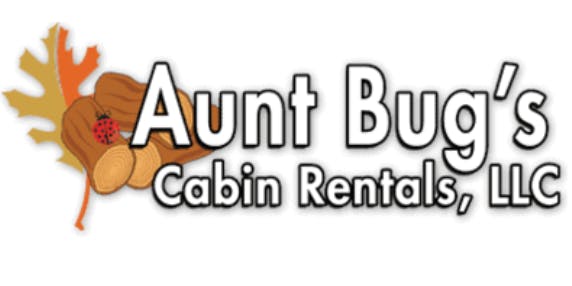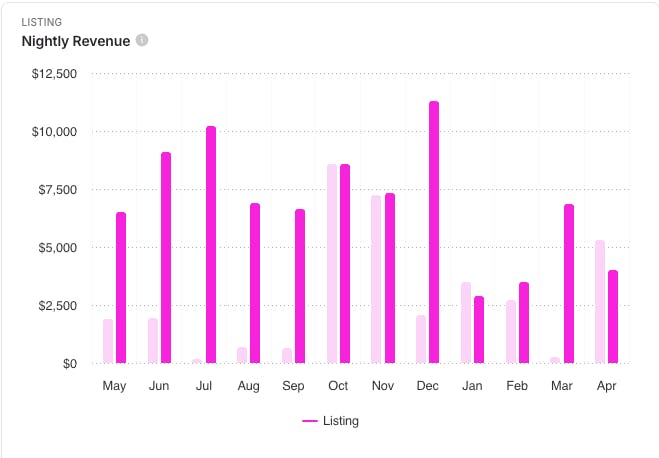
Introduction
Aunt Bug’s Vacation Rentals, based in the Smoky Mountains, is a staple in one of America’s most beloved drive-to markets. Known for their extensive inventory and high guest satisfaction, they’ve also achieved something rare in the short-term rental (STR) industry: nearly full homeowner trust in their revenue management strategy.
Behind that success is Shawn Spiezio, who leads the company’s revenue strategy with a blend of data, market instinct, and hands-on hospitality experience. Since adopting Wheelhouse, Shawn and his team have elevated pricing, improved owner communication, and navigated unpredictable markets with flexibility and confidence.
From Static Pricing to Scalable Strategy
Before Wheelhouse, Aunt Bug’s revenue approach was relatively static. Rates were managed with basic structures and limited ability to scale across the portfolio.
“We had a keep-it-simple approach. Rate codes helped us manage categories of homes, but doing things in bulk was hard,” Shawn explained.
With Wheelhouse, that changed. The team now leverages data-rich dashboards, dynamic minimums, and market-sensitive pricing to adapt on the fly. Shawn says the difference has been night and day: what once required complex spreadsheets and time-consuming updates is now automated, streamlined, and far more responsive to shifting demand.
Staying Agile in a Complex Market
In 2024 and 2025, STR operators across the country faced unusually difficult seasons. Spring break was unpredictable, and demand cycles across election years, economic pressure, and weather disruptions added further complexity.
For Aunt Bug’s, occupancy was the top priority early in the year. The team worked to drive bookings with targeted rate drops, even lowering rates during spring break to encourage midweek stays.
Shawn emphasized that pricing decisions weren’t made in isolation. His team cross-referenced performance against about 20 local competitors, tracking occupancy pick-up rates and comparing pricing across OTAs.
“It’s not just about rates—we look at fees, traffic, restaurant demand, and booking windows,” he said. “It’s a full-picture view, and Wheelhouse gives us the tools to react quickly.”
The result is a strategy that supports not only homeowner revenue but operational sustainability. For example, in slower seasons, they’ll offer lower prices on select homes just to keep their housekeeping staff consistently busy.
Building Unmatched Trust with Homeowners
One of the most impressive achievements at Aunt Bug’s is a 99% homeowner adoption rate for dynamic pricing. While many STR managers report that up to 30% of their owners resist revenue recommendations, Aunt Bug’s has nearly full buy-in.
How? According to Shawn, it comes down to consistency, transparency, and results.
Most homeowners trust the team to manage pricing decisions without interference. For higher-end properties, they may accommodate preferences around minimum rates—but otherwise, the team has full control over rate strategy.
“We’ve always handled rates in-house, and our owners trust us to do what’s best for them,” he said. “Of course, everyone wants more bookings and more revenue. But we’re clear about market conditions and strategy.”
Monthly communication helps reinforce this trust. Some owners receive personalized updates, while others are looped in with broader market trend summaries. When market conditions shift, the team brings owners into the strategy conversation, which strengthens alignment and long-term relationships.
That trust has paid off. Shawn estimates that since 2019, Aunt Bug’s has seen a 15–20% increase in average revenue per unit, excluding the outlier years during COVID. And they’re not achieving it through gimmicks or inflated pricing—just smart, data-driven management and strong communication.


3323 Pigeon Forge Views is outperforming year-over-year and pacing ahead of the market in revenue growth and adjusted occupancy, all while remaining competitive with their rates compared to the market.
The Tools That Make It Work
Shawn and his team rely on Wheelhouse’s suite of tools to execute across their portfolio. Their daily workflow includes:
- Reviewing 30/60/90-day dashboards for property performance
- Monitoring occupancy trends and pickup rates
- Comparing OTA pricing and fees across competitors
- Adjusting minimums dynamically based on market conditions
- Leveraging portfolio-level and calendar-level settings for fine-tuned control
They’ve also started experimenting with new features like heat mapping, which reveals price adjustments across listings week over week—offering quick visibility into algorithm-driven changes.
Shawn notes that ongoing feature improvements, like this one, are what make Wheelhouse stand out. “The dashboards are getting better all the time. And the support team is always responsive when we have questions.”
Facing Disruption with Flexibility
In 2023, a hurricane disrupted traffic patterns near Asheville and throughout the Smoky Mountains. Aunt Bug’s felt the ripple effects—especially with travelers from North Carolina, who assumed the entire region was impacted.
While they did see a dip in bookings from that region, they also picked up new guests from the Midwest and other drive-to markets. Wheelhouse helped the team respond in real time, adjusting prices and maintaining occupancy even as patterns shifted.
This kind of responsiveness is essential for a portfolio that includes both large, luxury homes and smaller, budget-friendly cabins. The former benefit from long booking windows and premium pricing, while the latter often compete on price and require more tactical adjustments.
“We have to think of some of our inventory like commodities,” Shawn said. “And booking window is a huge factor, especially for bigger properties.”
Looking Ahead—and Staying Competitive
While real estate sales have slowed portfolio growth, Shawn and his team still use revenue performance as a key sales tool when talking to new homeowners. Being able to show real data, side-by-side comparisons, and the value of their in-house strategy gives them an edge—especially when pitching to self-managing owners.
“If we can show how similar properties perform with our team and our pricing strategy, it’s usually enough to win them over,” he said.
When asked what makes Wheelhouse the right fit, Shawn didn’t hesitate:
“Smart people, great dashboards, good value. It gives us what we need every day to do our job right.”
He also appreciates the layered support system, training resources, and transparency around new features. In an unpredictable market, those elements create stability for his team—and trust from his owners.
Final Thoughts
Aunt Bug’s approach to dynamic pricing isn’t just about technology. It’s about accountability, owner trust, and constant learning.
“Even when we think we have everything figured out, the market changes,” Shawn said. “We take responsibility whether the economy is strong or not. Our owners know we’re in it every day, working to make good decisions—and that’s what earns their trust.”
Amelia Melching
Community
Amelia drives all things Community at Wheelhouse with years of experience in the short-term and vacation rental industry. She helps operators and owners optimize their dynamic pricing strategies, drawing on her expertise in revenue management to maximize revenue.
View profile →Andrew Kitchell
CEO & Founder
Andrew Kitchell is CEO and Founder at Wheelhouse, a revenue management platform that serves the leading professional operators in the vacation rental, short-term, corporate rental & boutique hotel space.
View profile →Revenue Manager Roundtable Recap: Strategies for the 2026 Travel Year
In the first Wheelhouse Revenue Management Roundtable of 2026, industry leaders from Roofstock, Upstay, VTrips, and Richer Logic gathered to discuss the data-driven adjustments required to stay competitive this year.

How Should North American Operators Plan Pricing For The 2026 World Cup?
Unlike a one-day event like the Super Bowl, the World Cup creates a "compression window" that lasts over a month. Managing your rates during this period requires a shift from standard seasonal logic to a sophisticated event-based revenue strategy.

How Should I Treat Discount Codes In My Revenue Strategy?
In the short-term rental industry, discount codes (or promo codes) are often viewed as a simple marketing gimmick. But treating discount codes as a core component of your revenue strategy is essential for maintaining rate integrity while maximizing your total yield.

